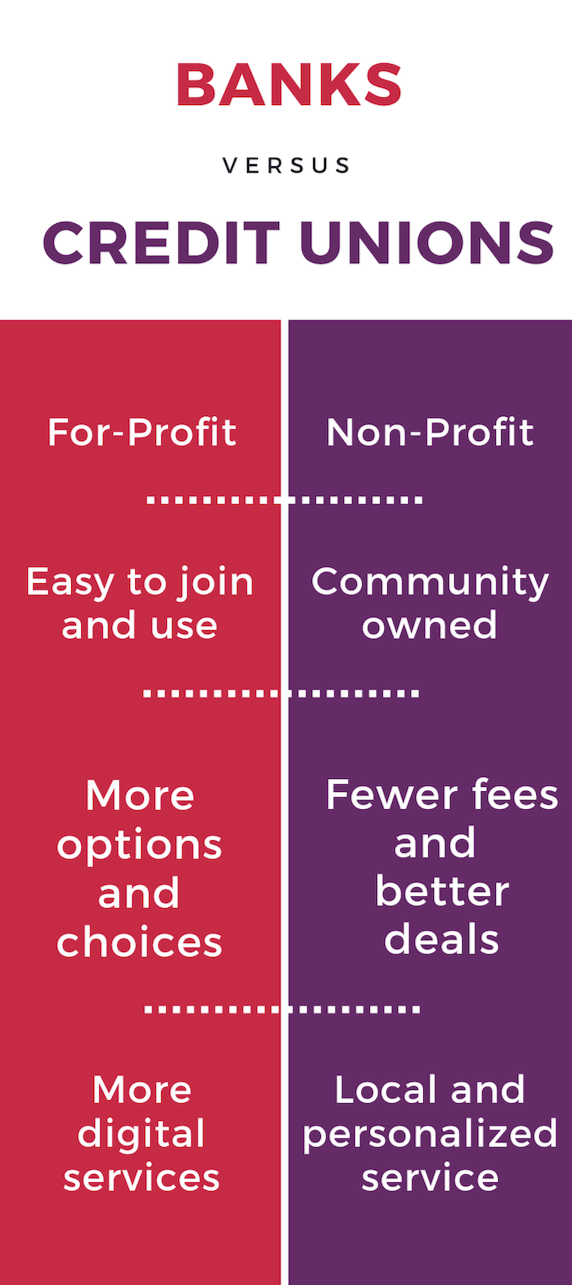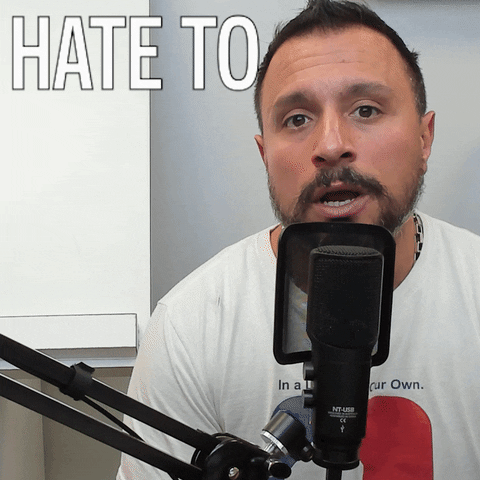Understanding the best place to store your money can be a little tricky.
A piggy bank just won't cut it anymore.

In the U.S., you have two main options: using a bank or a credit union, to help make your financial life easier.

Smart Money
While banks and credit unions are both places to store and access your money, so what's the difference?
Understanding which one is best for you will help you maximize your money.

Banks: Cons
Banks usually have more minimum balance fees, overdraft fees, and even some sneaky hidden fees.

Subscribe for more quick bites of learning delivered to your inbox.
Unsubscribe anytime. No spam. 🙂
Credit Unions: Pros
Credit Unions are nonprofit, cooperatively owned, and locally based.
This means credit unions usually get you a better deal on savings rates, lower loan interest, and less fees.

Credit Unions: Cons
Credit Unions often have entry requirements for joining like being of the same faith, job, or community.

Also, credit unions usually have fewer branches, ATMs, and digital services (e.g. a less user friendly app).
Quiz
Emma is a college student in her hometown who doesn't travel much and really needs to be careful with her spending. Where is the best place for her to open an account?
Know The Differences

Take Action
Look into the specific options where you are living, but know that you have a choice.
 This week:
This week:

Your feedback matters to us.
This Byte helped me better understand the topic.

